Financial experts have warned that any attempt by the Central Bank of Nigeria (CBN) to further raise the Monetary Policy Rate (MPR) to fight inflation will worsen the current state of the economy.
The warning is coming as the Monetary Policy Committee (MPC) of the CBN prepares for its July meeting, which will be the first under President Bola Tinubu.
While noting that several factors may want to push the Committee to further increase rates, they said doing so would do more harm than good to the economy.
Specifically, a Professor of Capital Market at the Nasarawa State University, Keffi, Prof Uche Uwaleke, said the decision of the MPC in the July meeting will be influenced by the rising inflation expectations due largely to the sudden removal of fuel subsidy.
He added that the pressure on the naira and exchange rate volatility occasioned by the recent Naira float would also influence the MPC decision.
READ ALSO: Suspended CBN governor, Emefiele to know fate July 25
While noting that the acting CBN governor, Mr Folashodun Shonubi, who will be chairing the meeting, has been part and parcel of the hawkish MPC stance for months now, Uwaleke said another rates hike will not come as a surprise.
“Be that as it may, the MPC should equally recognize that the removal of fuel subsidy has slowed down economic activities considerably with an attendant drop in productivity. So, economic growth and jobs are already negatively impacted such that a further monetary policy tightening would only worsen the situation.
“Cost of capital will further increase and access to credit by small businesses will become more difficult,” he said.
He said that a further increase in the MPR was also likely to endanger the asset quality of banks through an increase in non-performing loans as Deposit Money Banks (DMBs) repriced their loans.
Advertisement“This is against the backdrop of the fact that many of the factors driving inflation in Nigeria, such as insecurity affecting food output and high energy costs, are outside the control of the CBN,” he said.
Uwaleke urged the MPC to seize the opportunity of its forthcoming meeting to signal readiness to support output growth.
According to him, this can be done through policies geared towards fostering a low-interest rates environment while keeping an eye on inflation, using a mix of heterodox measures.
Also speaking, a past President of the Chattered Institute of Bankers of Nigeria (CIBN), Mr Okechukwu Unegbu, the MPC should lower the MPR to allow easy access to credit for the productive sector of the economy.
READ ALSO: CBN revises tenure limits for bank executives
Unegbu said that since the lending rate in banks is dependent on the MPR, lowering it would be more beneficial for economic growth by allowing easier access to funds for the manufacturing sector and for small businesses.
He, however, said that the idea of DMBs using the MPR to decide their lending rates should also apply to interest rates on savings.
“The banks use the MPR to increase their lending rates, but savings interest rates are always very low. Interest rates on savings should guide the banks on their lending rates. They are supposed to look at the average interest rate on savings to consider their own lending rates.
“I expect the MPC to reduce the rates this time so that banks can reduce their lending rates in order to encourage lending to the productive sector of the economy,” he said.
According to the Partner and Chief Economist at KPMG Nigeria, Mr Yemi Kale, the MPC was facing a dicey meeting since the suspension of Emefiele.
He said the inability of the CBN to control inflation had been largely due to the fact that the main drivers of inflation were structural and supply-based, which could not be controlled effectively with the money supply tools available to it.

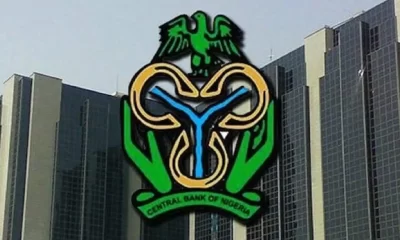
 Business4 days ago
Business4 days ago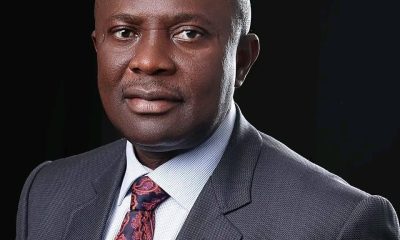
 Politics3 days ago
Politics3 days ago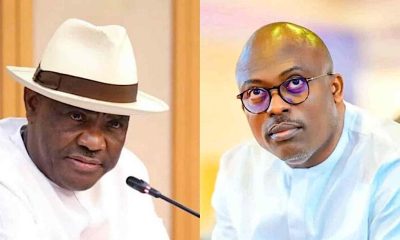
 Latest1 week ago
Latest1 week ago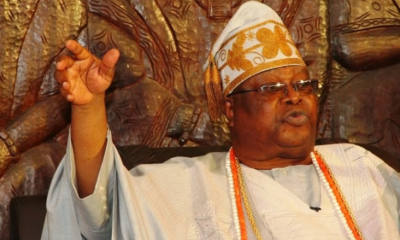
 Featured3 days ago
Featured3 days ago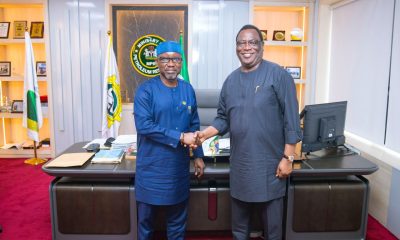
 Business3 days ago
Business3 days ago
 Business1 week ago
Business1 week ago
 Latest3 days ago
Latest3 days ago
 Business5 days ago
Business5 days ago



